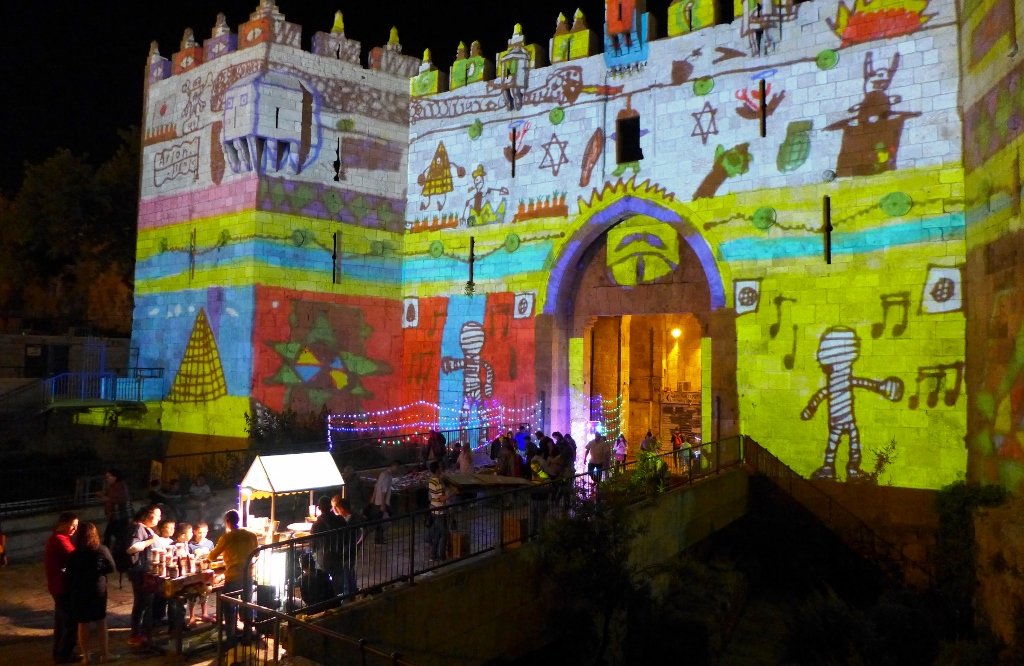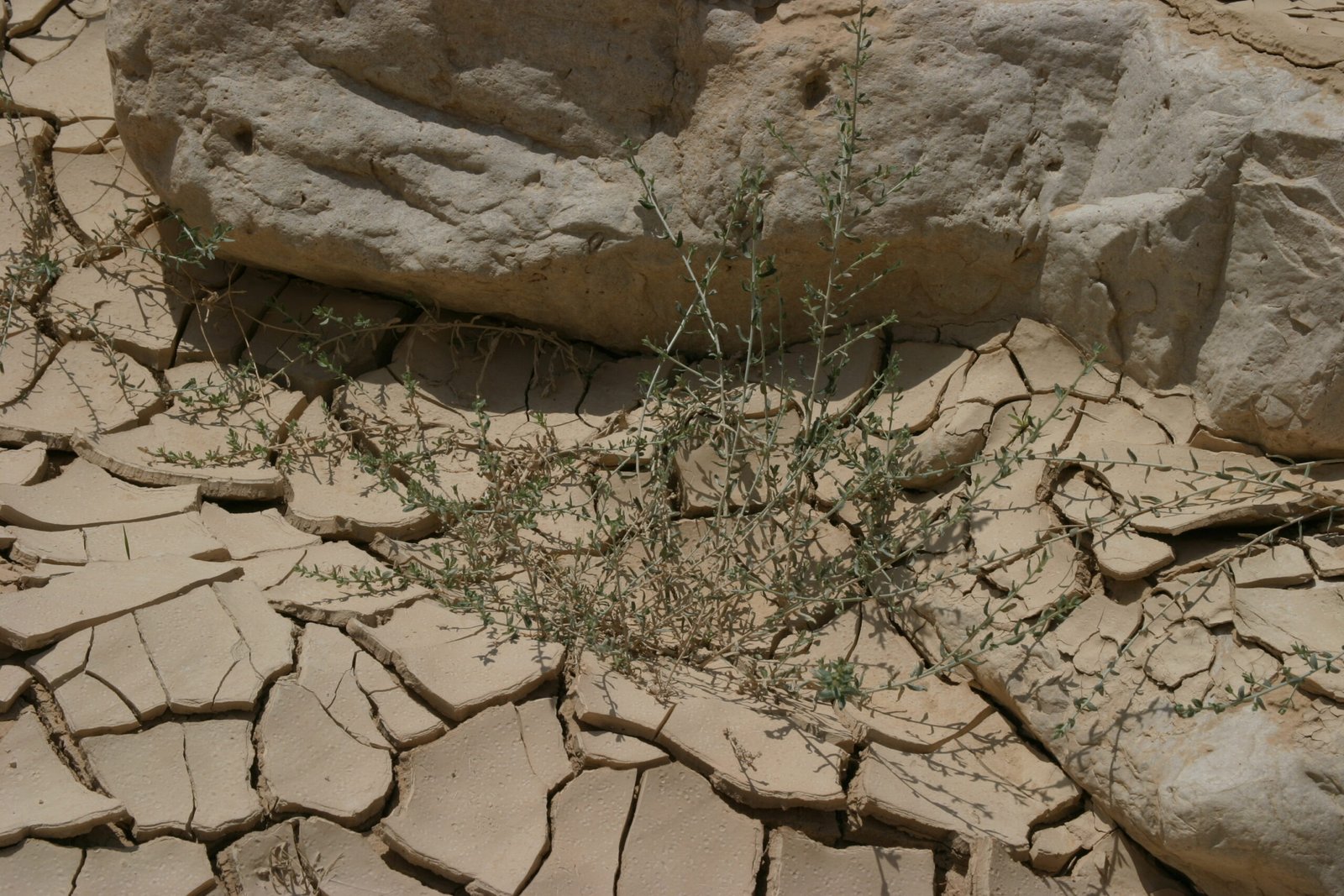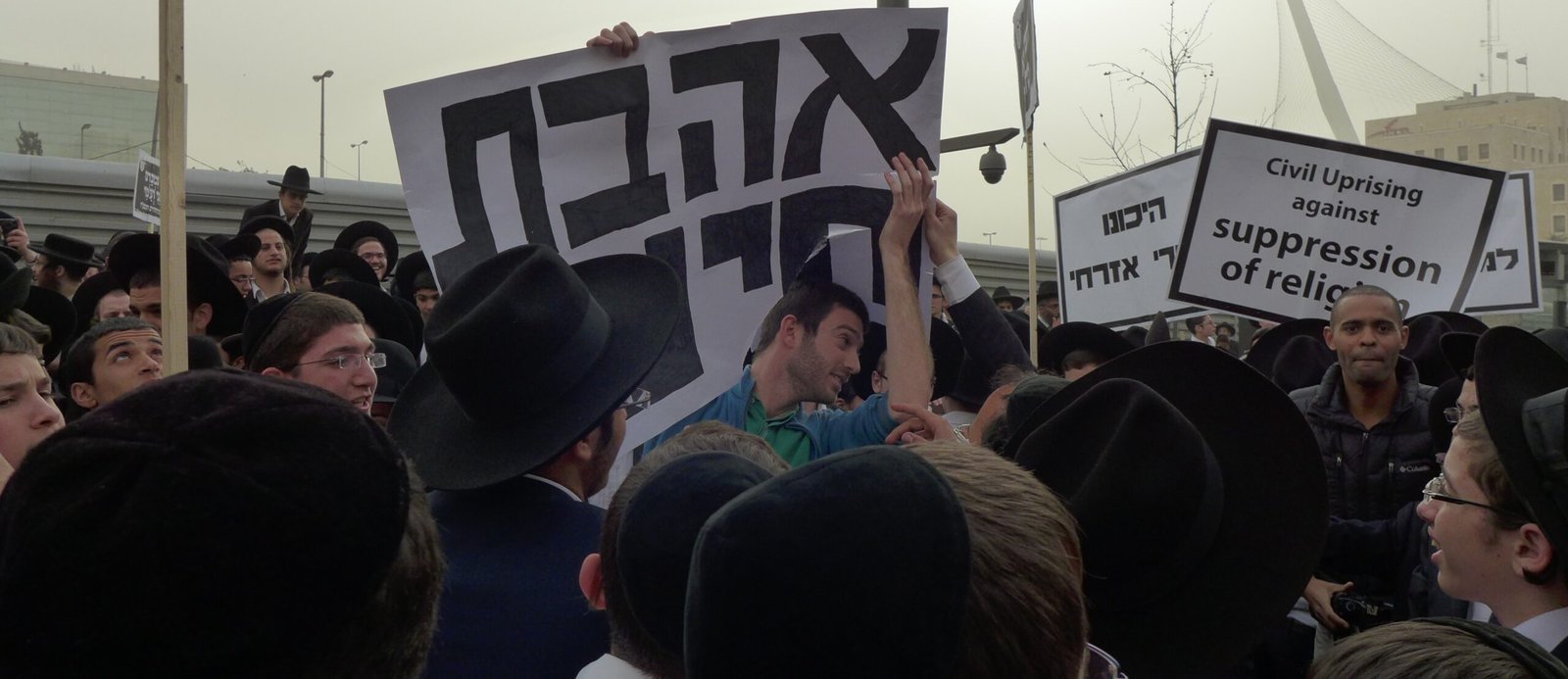Share This Story, Choose Your Platform!
With enigmatic staccato, Psalm 87 throws assertions at its readers that at first glance seem incoherent. Nothing is really explained. Each statement stands on its own and could also make sense in a different context. This psalm seems like a bundle of fragments of thoughts that confuses rather than provides orientation. The German reformer Martin Luther, as far as I could ascertain, did not comment on this chapter of Scripture at all, nor did he quote it in any other context.
Interpreters who have studied Psalm 87 admit a prophetic quality to it.[1] It is claimed that this psalm explains interrelations from a perspective that is not visible to the natural eye. Psalm 87 provides a revelation, an apocalypse, it discloses of a secret.
The Israeli exegete Amos Hakham[2] notes a linguistic similarity between Psalms 46, 48, 84 and 87 and observes: “All these psalms are attributed to the sons of Korah, glorify the Holy City and its sanctuary.” Hakham assumes Psalm 87 to be a song that was recited on the occasion of pilgrimages to Jerusalem. Possibly it was presented as an antiphony, to which “the changes of the speakers point”.[3]
An outline of Psalm 87
Amos Hakham divides the seven verses into two sections: The first section (verses 2-3) describes “the beloved, holy and highly revered Zion”. The second section (verses 4-6) underlines the statement that “all men have a right to be considered children of Zion”. These two main parts are framed by a heading (verse 1) and a conclusion (verse 7). The last verse resound the words of the singers and dancers going up to Zion.[4]
A total of twelve chapters of the Book of Psalms (42-49, 84-85, 87-88) bear the title “For the sons of Korah,…“
The “Bnei Korah” were Levites and descendants of Korah, who died during the Israelites’ wandering in the desert as a result of his rebellion against Moses and Aaron. The biblical account records: “But the children of Korah did not die” (Numbers 26:11).
With their name the “Sons of Korah” point to their progenitor and his story. Thus, they remind us of the rebellion of the chosen people against their God. But they also underline the grace and mercy of this same God, which always makes a new beginning possible.
Rabbi Avraham Ben Me’ir Ibn Ezra[5] considered the descendants of Korah mentioned in the heading of Psalm 87 to be grandchildren or great-grandchildren of the prophet Samuel, who himself was of priestly descent. In any case, at the time of King David “sons of Korah” were gatekeepers in the Israelite sanctuary[6] and belonged to the temple choir, which Heman had founded[7]. Possibly there were also authors and presenters of psalms among them.[8]
Rabbinic interpreters of Scripture[9] consider both to be possible: Either that the psalms bearing this title and their melodies were authored by the “sons of Korah” themselves. Or, another possibility is that they were originally written by David “for the sons of Korah”, whose task then would have been to sing them during the worship service in the temple.
Chapter 87 of the “Sefer Tehilim” (ספר תהילים), the “Book of Hymns of Praises” – as the literal translation of the Hebrew name of the biblical collection of songs we call “Psalms” – is “a Psalm, a Song:” and: “His foundation [is] in the holy mountains.“
According to the Midrash[10], the “holy mountains” – as Rabbi Samson Raphael Hirsch observes[11] – are Mt Sinai and Mt Moriah. “It was upon Mt Moriah that there stood the Temple in which reposed the Law that came from Sinai. Therefore Moriah can be regarded as a continuation of Sinai”.[12]
Judaism does not provide a credible tradition in respect to the exact location of Mt Sinai. Rashi[13] explains: “The foundation of this psalm is on Mount Zion. Jerusalem is the ground upon which the poet stands.”
Founded in Zion
If this Psalm has its “foundation in the holy mountains,” that is, in Zion, then it consequently originates in and is based upon the will, the word and the dealings of the one, true and living God – like everything “founded in Zion”.
“For the Lord has established Zion.”[14] The Lord is the One who “chooses Jerusalem”[15]. He says (Isaiah 28:16): “Behold, I found a stone in Zion, an even bochan (אֶבֶן בֹּחַן) – a stone that puts on the test, a testing stone, a generally applicable standard – a precious cornerstone as foundation, which is firmly established.” The King James Version concisely renders the conclusion which results from this fact: “He that believeth shall not make haste!”
“The Lord loves the gates of Zion…”
God loves Zion. This is the simple, sufficient and inscrutable reason for the Lord’s choosing of Israel.[16] Love is neither questionable nor rationally comprehensible. Until the last book of the New Testament, Jerusalem is simply “the beloved city” (Revelation 20:9). The choice of words here in Psalm 87 emphasizes “the continuing love relationship” (ohev, not ahav!) of God with the gates of Zion, marked by faithfulness.
The gates represent the whole of the city. Those who love a city often enter and leave through its gates. But perhaps the gates are mentioned here already in the hopeful prospect of the abundance of people who will enter Zion through them.[17]
The pearls of the city
The Midrash Tehilim preserved Rabbi Jochanan’s interpretation of this passage. He foresees “the Eternal One bringing precious stones and pearls that are engraved and putting them in the gates of Jerusalem.” One of his students mocks this. In the unfolding discussion, the city’s gems and glittering wealth are associated with the reign of King Messiah, “before whom silver and gold will be as dust”.[18]
Even if some issues in this interpretation remain dark, an associative link is made to Revelation 21. There the seer John (Hebrew “Jochanan”) describes the New Jerusalem coming down “from God out of heaven”, “like a bride adorned for her husband” (verse 2). “It pertains the glorious presence of the [one, true, living] God” (verse 11), the “shekhinah” (שכינה). To describe this phenomenon, the New Testament seer uses comparisons with precious stones (verses 11b,18-20). He sees “twelve gates” as “twelve pearls. Each of the gates is made of a single pearl” (verse 21).
It is noteworthy for our further reflection: The penultimate chapter of the “Christian Bible” sees “the names of the twelve tribes of Israel” engraved on the gates of Jerusalem (Revelation 21:12). “The splendor and wealth of the gentile nations” are brought into the spiritual center of Israel (verse 26). From there the nations will finally experience healing (Revelation 22:2).
Returning to our text, we remember: “The Lord loves the gates of Zion… more than all the dwelling places of Jacob.“
“Though the Lord loves all the dwellings of Jacob”, as Rabbi David Ben Yosef Kimchi, the “Radak”[19], stated referring to the prophecy of the gentile seer Balaam (Genesis 24:5), “he loves the gates of Zion more” than all the dwellings of Jacob.
Love is exclusive
Every love is always “more than” and distinguishes between “all the others” and the beloved. Love is exclusive by definition. An attitude which does not distinguish, emphasize, choose, and consequently in some way exclude everything else, is “objectivity,” “neutrality,” treats all the same, is “indifference” – i.e., the exact opposite of love.
Radak looked for a justification for God’s special love for the gates of Zion. One reason might be that “the elders and sages are sitting there, engaging in the work of God – i.e., the worship service”. “I love the synagogues and teaching houses”, Radak lets God say, “but Zion is my command post, my praetorium”.
Without explicitly making the reference, he alludes to Isaiah 2:3: “From Zion goes out Torah and the word of the Lord from Jerusalem!” But these characteristics of Zion and its gates could also be a consequence of God’s love and choice. Therefore, in the end there is no way out but to stand before the mystery of God’s love, to accept it as inexplicable.
“Aliyah” is God’s will
In this comparative sentence, “The Lord loves the gates of Zion more than all the dwellings of Jacob,” there is another aspect that is important for the course of the content of Psalm 87:
The overwhelming majority of the people of Israel, here referred to as “Ya’akov”, have lived outside the land of Israel ever since the beginning of the Babylonian captivity in the 6th century BC. Since then, they never returned to the land, as Ezekiel (39:28) prophesied: “I have gathered them unto their own land, and have left none of them any more there.” This is true even today, though in recent years, for the first time in more than two and a half millennia, the largest Jewish community worldwide has been living in the land of Israel.
To this very day the majority of the Jewish people live outside the Promised Land. Jews felt and still feel so comfortable in the diaspora that in the vast majority of cases they only immigrated to the land of Israel when they had no other option.
A crucial aspect of our psalm, as we will see, is the return of the people of Israel to the land of Israel. With this in mind, the Psalmist makes it fundamentally clear at this point: “The Lord loves the gates of Zion” as a dwelling for His people “more than all the dwellings of Jacob” in the whole world. In plain language: “Aliyah”, the going up to Zion, the immigration of the Jewish people to Israel, corresponds to the will of God. “Without the spirit that is derived from Zion, ‘Israel’ is only ‘Jacob,’”[20] Hirsch simply states.[21]
“Zion” gives orientation
The name “tziyon” (Zion) is etymologically closely related to “tziyun”, which is written exactly the same in Hebrew (ציון). “Tziyun” is the “designation”, the “distinction”, a “signpost”, the “giving of a direction”. A “tziyun” provides orientation – and “tziyon” (Zion) directs a human being towards the One who has chosen and distinguished the city of Jerusalem before all other places in the world. To concentrate on Zion necessarily leads to the God of Israel.
[1] For example C.F. Keil and F. Delitzsch, Psalms 84-150, Commentary on the Old Testament vol.5/3. Translated by Francis Bolton (Peabody, Massachusetts/USA: Hendrickson Publishers, 1986), 16, or August Dächsel, ed., Das Alte Testament mit in den Text eingeschalteter Auslegung, ausführlichen Inhaltsangaben und erläuternden Bemerkungen, Band 3. II/1: Lehr- und prophetische Bücher (Leipzig: Verlag von Justus Naumann, 2. Auflage 1876), 312.
[2] 1921-2012, became known in Israel as champion of the first Israeli and worldwide Bible quiz. His handicapped father, Noah Hakham, was a Jewish Bible teacher who had moved from Vienna to Jerusalem in 1913. He had not sent the only son to a public school for fear of a speech impediment. Rather, he himself had trained him in extremely poor conditions. The Bible quiz in August 1958 revealed Amos’ genius and established his legendary career as interpreter of Scripture. His expositions are only available to me in Hebrew.
[3] עמוס חכם, ספר תהלים, ספרים ג-ה, מזמורים עג-קן (ירושלים: הוצאת מוסד הרב קוק, הדפסה שישית תש”ן/1990), קכז.
[4] עמוס חכם, ספר תהלים, ספרים ג-ה, מזמורים עג-קן (ירושלים: הוצאת מוסד הרב קוק, הדפסה שישית תש”ן/1990), קכג.
[5] Rabbi Avraham Ben Me’ir Ibn Ezra (1089-1164) is one of the outstanding poets, linguists, interpreters of Scripture and philosophers of the Middle Ages. He came from Toledo in then Muslim Spain. Long journeys took him all over North Africa and up to the Land of Israel. He wrote almost all of his books during the last 24 years of his life. While fleeing Muslim persecution of the Jews, he toured Christian Europe at this time. In 1161 his track is lost in French Narbonne. It is known that he died in January 1164. It is unknown where this happened. Rome, Spain or even England are up for debate. As an outspoken rationalist, Ibn Ezra was the first to question Moses’ authorship of the Pentateuch. However, he believed in the prophetic significance of astrological phenomena – something which Rambam firmly rejected as idol worship. Since his works are written in Hebrew, he made accessible to European Jewry the intellectual wealth of oriental-Jewish scriptural interpretation, which is largely handed down in Arabic. Of particular value are his exact grammatical studies, always seeking the original, literal meaning of the text.
[6] 1 Chronicles 9:17ss; compare possibly also Psalm 84:10.
[7] 1 Chronicles 6:31,33,39,44.
[8] עמוס חכם, ספר תהלים, ספרים ג-ה, מזמורים עג-קן (ירושלים: הוצאת מוסד הרב קוק, הדפסה שישית תש”ן/1990), רמ.
[9] For example Radak and in his following Hakham (ibid.).
[10] The term ‘midrash’ (מדרש) is derived from the Hebrew root ‘darash’ (דרש), which means ‘to seek,’ ‘to ask.’ So, ‘midrash’ is literally ‘research,’ ‘study,’ ‘interpretation,’ ‘teaching,’ but is used here as a comprehensive term for rabbinic interpretation, which was passed on orally in the ancient world, later in written form. As a literary genre, the ‘midrashim’ as an interpretation follow the biblical text, whereas the ‘talmud’ deals with substantive issues and is ordered accordingly.
[11] 1808-1888, came from Hamburg and served as Chief Rabbi in Oldenburg, Aurich, Osnabrück, Moravia and Austrian Silesia. As a distinguished representative of Orthodoxy, he was an outspoken opponent of reformist and conservative Judaism. Hirsch attached great importance to the study of all Scripture. From 1851 he was rabbi of the separatist Orthodox „Israelitischen Religions-Gesellschaft“ (“Israelite Religious Society”), engaged in education and published the monthly magazine “Jeschurun”. Hirsch had a great love for the land of Israel, was at the same time, however, an opponent of the proto-Zionist activities of Zvi Hirsch Kalischer. He is seen as one of the founding fathers of the neo-orthodox movement.
[12] Samson Raphael Hirsch, The Psalms, rendered into English by Gertrude Hirschler (Jerusalem/New York: The Samson Raphael Hirsch Publication Society. Feldheim Publishers, New Corrected Edition 1997), 113 referring to Psalm 68:18.
[13] Rabbi Shlomo Ben Yitzchak (1040-1105) or “Rabbi Shlomo Itzchaki,” commonly called “Rashi,” was born in the northern French town of Troyes, studied for ten years in Mainz and Worms, before he returned to Troyes, where he distinguished himself as a judge and teacher. In his last years he witnessed the persecution of Jews during the Crusades. Rashi is one of the extraordinary interpreters of Jewish writings and the very first who explained the Bible and the Talmud comprehensively. His basic concerns were to bring Holy Scripture to the people, to promote the unity of the Jewish people and the theological confrontation with Christianity. Rashi made a sharp distinction between “pshat” (literal interpretation) and “drash” (allegorical interpretation), whereby the pshat gives the rash. His interpretation of Scripture has decisively shaped the reformer Martin Luther. Although his comments are still standard today, he often writes “I do not know”.
[14] Isaiah 14:32; compare further Psalm 78:69; 102:17; 147:2.
[15] Zechariah 3:2; likewise Psalm 78:68.
[16] Derek Kidner, Psalms 73-150, TOTC 14b (Leicester, England/Downers Grove, Illinois, U.S.A.: Inter-Varsity Press, 1975), 314.
[17] C.F. Keil und F. Delitzsch, Psalms 84-150, Commentary on the Old Testament vol.5/3. Translated by Francis Bolton (Peabody, Massachusetts/USA: Hendrickson Publishers, 1986), 18.
[18] מדרש תהלים (בובר) מזמור פז.
[19] 1160-1235, was the first among the great exegetes and grammarians of the Hebrew language. He was born in Narbonne, southern France. His father died early, so David was brought up by his brother Moshe Kimchi. Radak permitted philosophical studies only to those whose faith in God and the fear of heaven were firmly established. Publicly he dealt with Christians and attacked primarily their allegorical interpretation of Scripture and the theological claim to be the “true Israel”.
[20] For the meaning of the names “Jacob” and “Israel” compare my book „Verflucht und von Christus getrennt. Israel und die Heidenvölker. Eine Studie zu Römer 9-11“ (Holzgerlingen: SCM-Hänssler, überarbeitete Auflage 2013), 26-29.
[21] Samson Raphael Hirsch, The Psalms, rendered into English by Gertrude Hirschler (Jerusalem/New York: The Samson Raphael Hirsch Publication Society. Feldheim Publishers, New Corrected Edition 1997), 113.






















